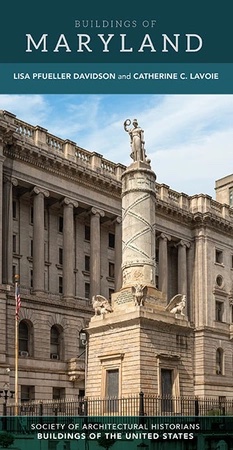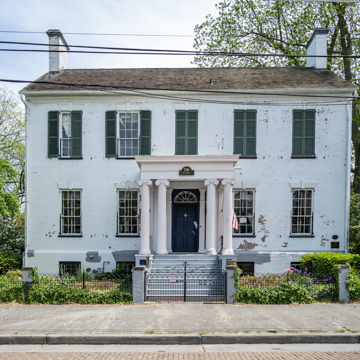The residential neighborhood northwest of Christ Episcopal Church includes some of Cambridge’s finest houses, many built by the political elite or prominent businesspeople. This house is one of a few distinguished eighteenth-century structures remaining among the predominantly nineteenth- and early-twentieth-century development. Several generations of the politically active Goldsborough family owned this five-bay, center-hall brick house built for Charles Goldsborough, who served in the U.S. House of Representatives and as governor of Maryland in the early nineteenth century. The original single-pile house received a rear wing shortly after its completion. The front porch and such interior details as plaster ceiling medallions were likely added after 1832.
You are here
GOLDSBOROUGH-PHELPS HOUSE
If SAH Archipedia has been useful to you, please consider supporting it.
SAH Archipedia tells the story of the United States through its buildings, landscapes, and cities. This freely available resource empowers the public with authoritative knowledge that deepens their understanding and appreciation of the built environment. But the Society of Architectural Historians, which created SAH Archipedia with University of Virginia Press, needs your support to maintain the high-caliber research, writing, photography, cartography, editing, design, and programming that make SAH Archipedia a trusted online resource available to all who value the history of place, heritage tourism, and learning.





















